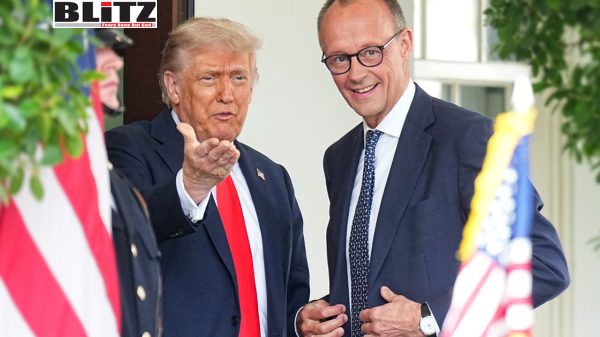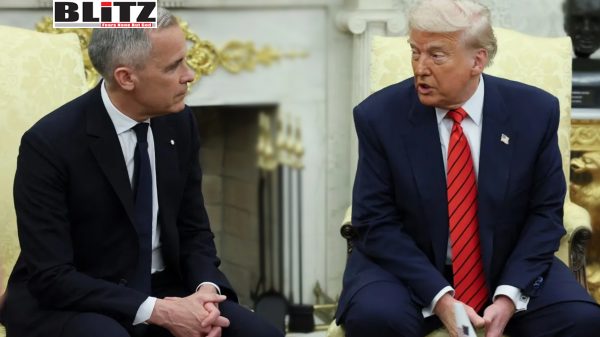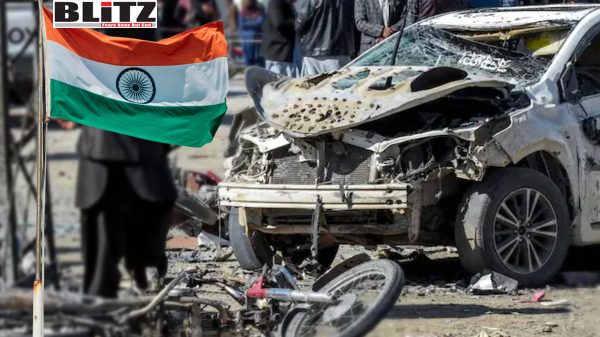Biden administration downplays risks emanating from the Taliban
- Update Time : Friday, September 1, 2023

President Biden’s recent assertion that Al Qaeda is no longer present in Afghanistan, and that the Taliban is aiding the US in countering terrorism, appears to conflict with the on-ground reality. US diplomats conveyed a similar sentiment after their inaugural meeting with Taliban representatives in July this year. While the US State Department acknowledges a reduction in major attacks within Afghanistan, endorsing the Taliban’s anti-terrorism efforts could be sidelining broader international threats.
The Taliban’s military success in Afghanistan has emboldened various militant groups in the region, many of which were displaced before 2021.
This triumph has enabled these groups to navigate the area with impunity. Despite claims by the UN Sanctions Monitoring Team, Al-Qaeda remains operational in Afghanistan, with an estimated 2,000 fighters. The Taliban has even appointed Al-Qaeda members to significant administrative and military roles. Notably, Qari Esanhanullah and Agha Hakeem, Al-Qaeda veterans, have become governors of vital provinces.
The appointment of Tajmir Jawad Hafizallah as Deputy Chief of the Taliban’s Intelligence wing, GDI, is concerning due to his association with the Kabul Attack Group. This group, a partnership between Al Qaeda, the Haqqani Network, and Pakistan’s Inter-Services Intelligence, poses potential risks.
The Biden administration must reconsider its stance on Afghanistan, especially in light of Hafizallah’s elevation.
Similarly, the Afghan branch of the Islamic State (ISKP) is still active, particularly in Afghanistan’s east and northeast regions. Established in 2015, ISKP is notorious for large-scale urban attacks targeting religious and ethnic minorities, and Taliban officials. The targeting of a senior Taliban leader’s funeral in Badakhshan province resulted in significant casualties.
In addition to contending with ISKP, the Taliban faces internal resistance within Afghanistan. Groups like the National Resistance Force and the Afghanistan Freedom Front have intensified their operations, targeting the Taliban’s military infrastructure and senior commanders. While they lack the operational capacity to pose a serious threat to the Taliban, these groups challenge the narrative of a peaceful Afghanistan.
Following Kabul’s fall, Pakistan has experienced a surge in attacks attributed to the Tehreek-e-Taliban Pakistan (TTP), a Taliban offshoot. TTP’s capabilities have grown significantly, and the group has established new support bases, extending their reach beyond traditional strongholds. Despite Taliban disavowals, evidence points to Taliban influence over TTP. Senior TTP commanders have died under mysterious circumstances in Afghanistan.
TTP Chief Noor Wali Mehsood narrowly escaped an attack in Afghanistan, revealing the group’s connection to the Taliban. The TTP’s presence highlights Taliban ties and the TTP’s restructuring mirroring the Taliban’s success. Meanwhile, the Islamic State’s Afghan affiliate (ISKP), while primarily the Taliban’s adversary, has shifted focus towards Pakistan. This shift is evident in attacks on civilians, including a devastating suicide bombing in Bajaur district.
Beyond Pakistan, other transnational groups in Central and South Asia have revived their operational capacities. A UN report reveals the East Turkestan Islamic Movement’s presence in Afghanistan, indicating a growing alliance between the Taliban and Al-Qaeda affiliates. The Afghan Taliban has relocated Tajik militants to Afghanistan, further demonstrating its ties.
The Biden administration’s tendency to downplay Afghanistan’s terrorism risks is alarming. A comprehensive understanding of transnational threats is crucial, and prerequisites must be set before formal talks with the Taliban.
Demands should include removing Al-Qaeda members from Taliban ranks and severing ties with regional jihadist groups. The US should also support cross-border operations against the TTP in Pakistan. Such a strategic approach could prompt the Taliban to reconsider ties with the TTP and Al-Qaeda. This path paves the way for productive talks, focusing on an inclusive government and women’s education in Afghanistan.












